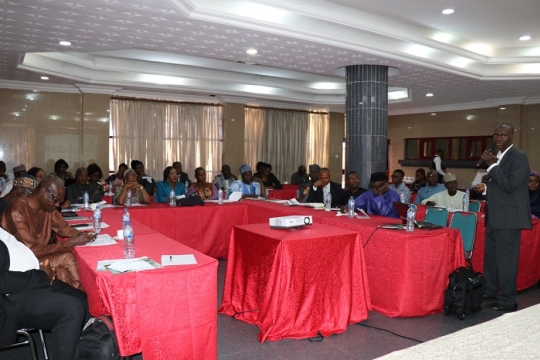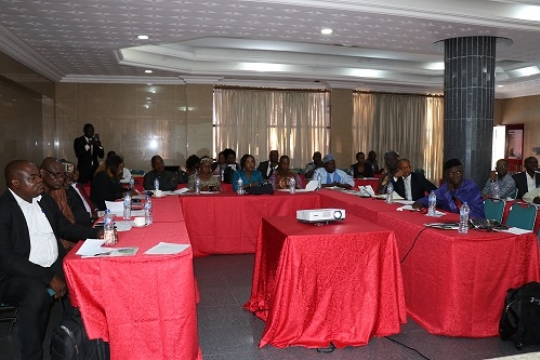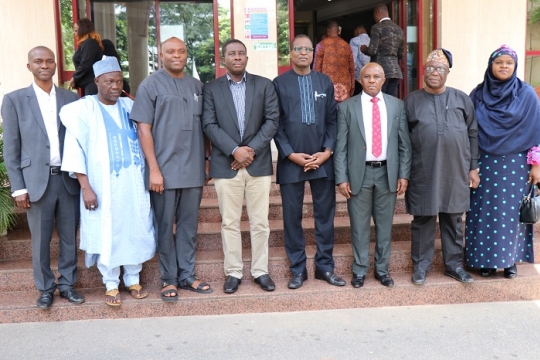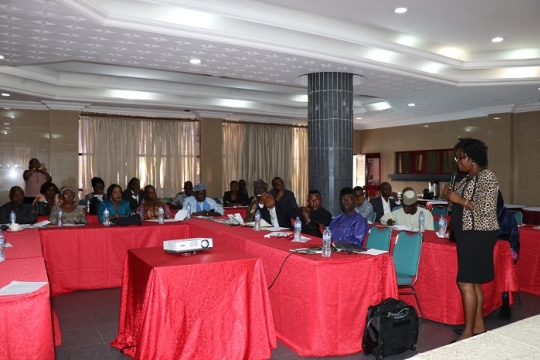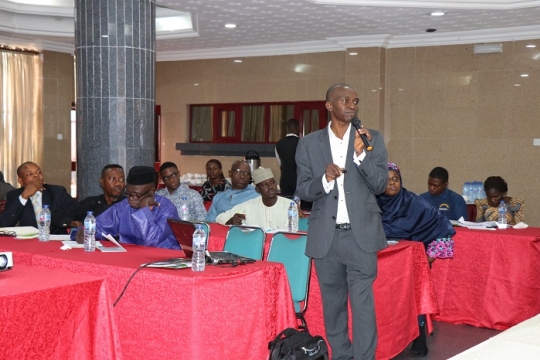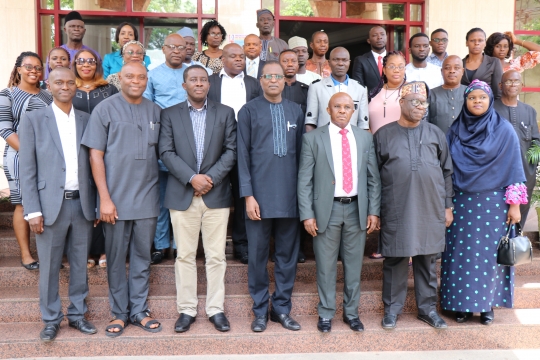The Resource and Environmental Policy Research Centre, Environment for Development (REPRC-EfD) Nigeria, has proposed a review of Nigeria’s Fishery Act of 1992 to accommodate regulatory measures that will curtail the depletion of fish and other aquatic creatures in Nigeria’s shelf.
The proposal was made at a Policy Outreach organized by REPRC-EfD Nigeria on October 17, 2019 at Valencia Hotel, Abuja
The event was attended by the representative of Nigeria’s Minister of Environment, the Vice-Chancellors of the University of Nigeria and the Alex Ekwueme University, scholars with concern on environmental issues, leaders of artisanal and industrial fishermen, directors from the state and federal ministries of agriculture and environment, fisher folks and journalists.
The policy interaction was based on research findings conducted by the Centre which used Fishery Performance Indicator (FPI) to evaluate performance of Marine Artisanal Fisheries in Nigeria.
Presenting findings of the EfD funded research, Dr Ebele Amaechina said that Nigerian marine artisanal fishery performed below and worse than the average of all African fisheries and therefore required urgent intervention.
The research therefore recommended an immediate stop to artisanal open access fishery in Nigeria by defining who is entitled to fish or not at each point in time.
The study also recommended the involvement of fishermen in regulating access and use of unwanted gears. That, according to the research, could be achieved by creating a beach management unit in every landing site.
The findings of the research provoked discussions among stakeholders at the event. The Director of REPRC-EfD, Dr Nnaemeka Chukwuone, who anchored the discussion, noted a shortfall in Nigeria’s Fisheries Act of 1992, which he said contained regulations only for industrial fishermen who fish above five nautical miles but contained no regulation for artisanal fishing in the lower shelf.
The aftermath, according to Dr Chukwuone, was a bastardized fishing practice which causes depletion of fish in Nigerian marine waters.
“In addition to the recommendations of the research, the regulation should also involve placing restrictions on the sizes of hooks and nets sold to artisanal fishermen in Nigerian markets”, Prof. Pat Okpoko, the Deputy Vice-Chancellor Administration, University of Nigeria who represented the Vice-Chancellor said.
But the Chairman of Nigerian Union of Fishermen and Sea Food Dealers, Badagry, Mr Ashade Moses said that any attempt to regulate artisanal fishing in the country would compound the hardship faced by artisanal fishermen because they do not get incentives from the government.
He however said that there was need to stop the incursion of industrial fishermen, who were mostly foreigners, into the Nigerian artisanal fishing space
Dr Tafar, who represented the Minister of Environment, suggested that the points raised in the policy interactions must be taken seriously; the outcome should be condensed to a policy brief that should be forwarded to other policy makers for further action. He assured that the ministry would work with the Centre to review environmental policies in Nigeria.
Prof. Emmanuel Oladipo, who chaired the policy day discussion panel, said that the event had revealed the need for research on improved species of fish that could serve the growing Nigerian population. He said such research should also discover the fishery potentials of Nigerian rivers, waters and lakes.
Prof Oladipo commended REPRC-EfD for organizing the outreach, stating that the event had produced outcomes that should be articulated to influence policy decisions in fishery.
A major part of the event was the inauguration of members of the Policy Advisory Panel of the Centre. Members of the panel, chaired by Prof Emmanuel Oladipo, a renowned environmental scholar, included the Director of Climate Change in the Ministry of Environment; the Chairman, House of Assembly Committee on Environment; the President, All Farmers Association of Nigeria; the Permanent Secretary of the Ministry of Agriculture and Professor Chinedu Nwajiuba, the Vice-Chancellor of Alex Ekwueme University.
Other members of the panel included: Mr Joseph Akpokodje of the World Bank, Abuja; Mr Muyiwa Odele, United Nations Development Programme (UNDP) Abuja; Mrs Halima Bawa, Deputy Director Federal Ministry of Environment; Professor Eric Eboh and Professor Stellar Williams
A paper titled “A case for Integrating Knowledge of Environmental and Resource Economics into Natural Resource and Economic Management in Nigeria” was also presented by Dr Chukwuone to the participants numbered over 45.
Read more:
